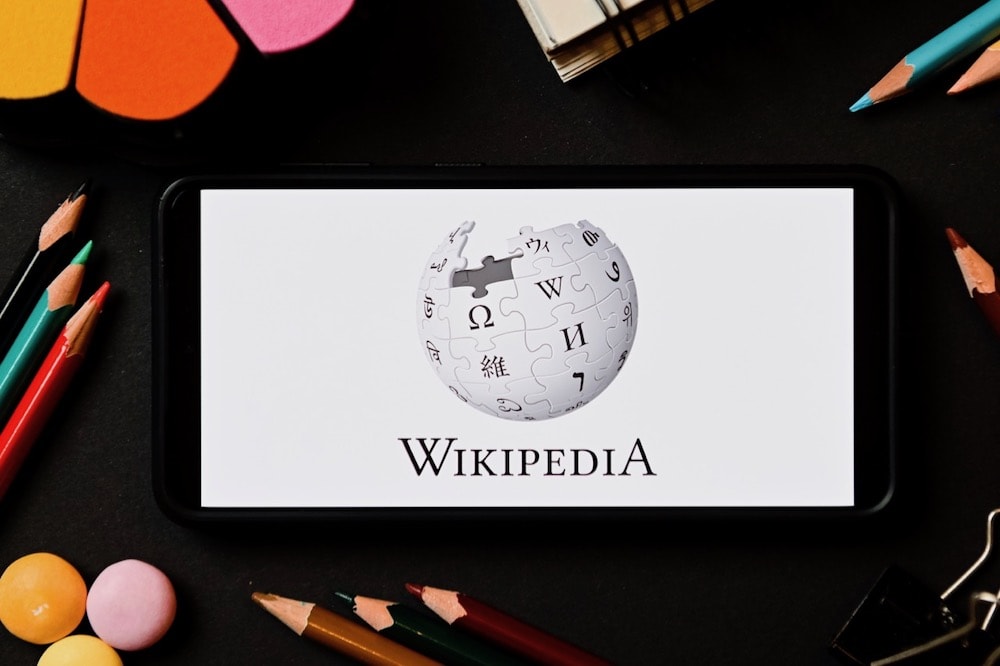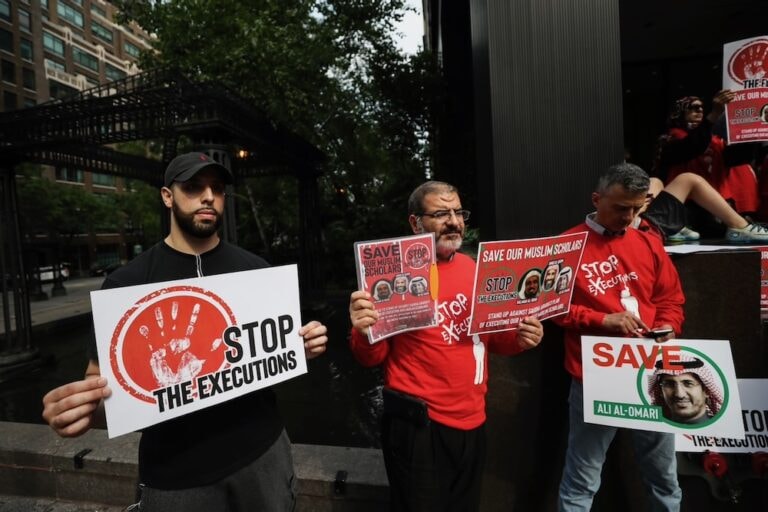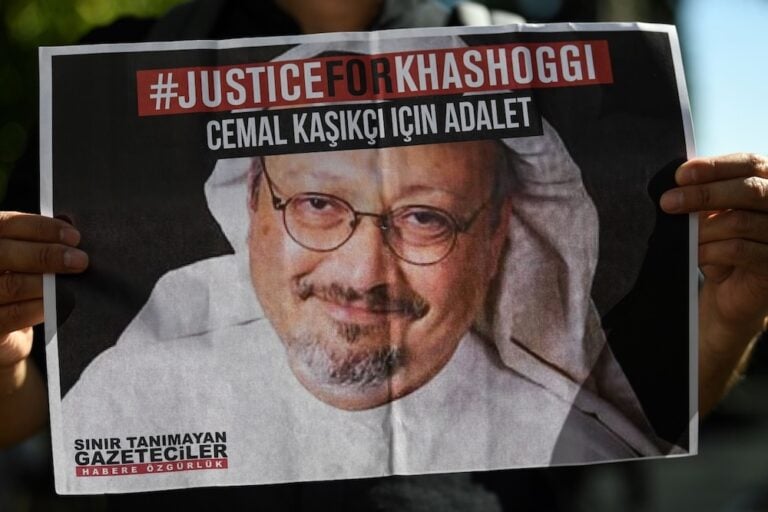Internal Wikimedia investigation results in termination of entire Saudi-based team of administrators.
This statement was originally published on smex.org on 6 January 2023.
The Saudi Arabian government infiltrated Wikipedia by recruiting the organization’s highest ranked administrators in the country to serve as government agents to control information about the country and prosecuting those who contributed critical information about political detainees, said SMEX and Democracy for the Arab World Now (DAWN) today. Following an internal investigation in 2022, Wikimedia terminated all of its administrators in Saudi Arabia in December. DAWN and SMEX documented Wikimedia’s infiltration by the Saudi government based on interviews with sources close to the company and the imprisoned administrators.
“The Saudi government’s infiltration of Wikipedia with government agents acting as independent editors, and imprisonment of non-compliant editors, demonstrates not only its persistent use of spies inside international organizations but the dangers of attempting to produce independent content in the country,” said Sarah Leah Whitson, DAWN’s Executive Director. “It’s wildly irresponsible for international organizations and businesses to assume their affiliates can ever operate independently of, or safely from, Saudi government control.”
Wikipedia relies on varying ranks of volunteer administrators and editors, referred to as “Wikipedia users,” authorized by Wikimedia, the parent company of Wikipedia. Users are not employees of Wikimedia and do not receive any compensation. However, Wikimedia has established the Wikipedia community rules to grant them privileges as trusted, independent editors who self-regulate and administer content on Wikipedia. Administrators have exclusive authorization to use tools to edit, delete, and protect content pages (meaning no one else can edit them), and to block and unblock lower-ranking users and editors. To learn more about the different user access levels on Wikipedia please visit this page.
“Infiltrating Wikipedia is another example of the Saudi government’s ongoing efforts to control online information and knowledge production in our region,” said Mohamed Najem, Executive Director of SMEX. “It’s distressing that the Saudi government’s efforts to spread misinformation about its abuses has now breached as trusted and credible an international platform as Wikipedia.”
According to sources with knowledge of the matter who spoke to DAWN and SMEX, in September 2020, the Saudi government arrested two high-ranking Wikipedia administrators in Saudi Arabia, Osama Khalid and Ziyad al-Sofiani on the same day, charging them with “swaying public opinion” and “violating public morals.” The Specialized Criminal Court, the country’s counter-terrorism court used to prosecute political detainees, sentenced them in the summer of 2020 to five and eight years in Al-Haer prison in Riyadh, respectively. Sources close to the case told DAWN that the government prosecuted them because they had contributed information deemed to be critical about the persecution of political activists in the country.
The Specialized Criminal Court increased Mr. Khalid’s sentence to 32 years in September 2022 for the same charges in what appears to be part of a broader campaign to impose harsh additional sentences against political detainees.
“It’s despicable but entirely predictable that the Saudi government has prosecuted Saudis merely for posting content about the government’s human rights abuses,” said Raed Jarrar, DAWN’s advocacy director. “But Wikimedia also needs to take responsibility for the fact that its authorized editors are today languishing in prison for work they did on Wikipedia pages.”
Wikimedia appears to have acknowledged the infiltration and banned its editors in the country, but without providing any details. On December 6, 2022, Wikimedia announced that it had banned 16 users for “conflict of interest editing” following an internal investigation it had commenced in January 2022. Sources with knowledge of Wikimedia’s operations revealed to DAWN and SMEX that the ban was against 16 Saudi users, Wikimedia’s highest ranked editorial team in the region, following its discovery that they were serving as agents for the Saudi government to promote positive content about the government and delete content critical of the government, including information about political prisoners in the country. The identities of the 16 Saudi administrators appear listed on Wikimedia’s global ban page, indicating their ban on December 6, 2022.
Wikimedia only cryptically referred to its investigation but did not disclose the location or identity of the banned users or any details about the “conflict of interest editing” it had uncovered:
[o]n December 6th, 2022, the Foundation undertook 16 global bans to users who were engaging in conflict of interest editing on Wikipedia projects in the MENA region,” and that “[i]n January of 2022, the Foundation began an investigation into alleged conflict of interest editing on Wikipedia projects in the MENA region. In that investigation, we were able to confirm that a number of users with close connections with external parties were editing the platform in a coordinated fashion to advance the aim of those parties.
Wikimedia should make public the results of its investigation, disclose all of the pages the team based in Saudi Arabia edited, and subject them to independent review and analysis. It should conduct an internal review of all of the pages edited by administrators based in authoritarian regimes and issue warning labels that the content may be subject to government infiltration. Wikimedia should also review its reliance on administrators in countries where freedom of speech is limited and independent writing severely restricted, and reexamine the extent to which such administrators are themselves subject to the risk of prosecution.
The Saudi government should disclose its efforts to influence and control the content on Wikipedia, the extent to which it pressured or rewarded administrators based in Saudi Arabia to produce content to the government’s specifications, and release those prosecuted or sentenced for their role in posting content in Wikipedia.
SMEX is a Beirut-based organization that advances digital rights and freedoms in West Asia and North Africa.
Founded by the late Jamal Khashoggi, DAWN is a U.S.-based organization that aims to fulfill its founder’s vision of promoting democracy and human rights in the Middle East and North Africa.



